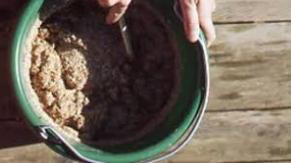Our Blog
WINTER COLIC - 1/21/2018

"Colic" is the extremely painful condition of excess gas or intestinal blockage that can rapidly lead to death in horses. It happens a lot in the Winter time.
As a horse owner said to me once, "Horses are eggs on legs." This is especially true of their digestive systems. Unlike other ruminants, such as cows, horses' stomachs and intestines are tender. I can remember my veterinarian husband telling me that at school, to study cow digestion, they sutured the rumen, or first cow stomach to the abdominal wall, made a hole in the outside of the animal, and put a rubber plug into it, so they could just dip in and sample the contents. Sometimes the cows "popped their plug" and then the students just literally shoveled the expelled contents back in!
Horses only have one stomach, like humans, and unlike humans and cows, cannot regurgitate their food. So whatever goes in, can only go out the back way. If something the horse eats causes a digestive upset and gas, it can be so painful that the horse lies down and rolls around, which can result in a torsion of the stomach or intestine, forming a blockage. This causes gut necrosis, or tissue death, rupture of the digestive tract, abdominal infection and death.
"WINTER COLIC" is the result of gut impaction, when the gut is filled with dry, un-expelled feces, causing a buildup of gas in the intestine. Impaction colic can happen when a horse does not have access to sufficient water, either because it is frozen, or the heater is not working properly causing an electric current to run through the water. Or it may be that the water is simply so cold that the horse is not interested in drinking it. Lack of exercise also has an impact, as exercise helps move material through the small and large intestine. So stall confinement or deep snow can compound the problem.
Winter colic can be avoided by observing the consistency and quantity of manure balls, as dry, small, and few in number is indicative of trouble. One should also make sure stock tank heaters are working properly, and all the ice is removed from stall water buckets before re-filling them, as remaining ice crystals help the bucket freeze faster. Also, providing periodic very soupy warm bran mashes with a little added salt helps. The mash puts water in the horse, the bran is laxative, and it also helps clean sand out of the stomach, which can otherwise cause "sand colic". We use a pound of bran, 1/2 a pound of barley or oats, a tablespoon of salt, and lots of warm water.
